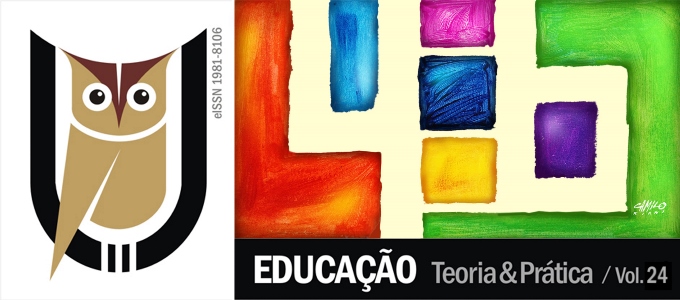Cognitive aspects in games workshops for learning a foreign language
DOI:
https://doi.org/10.18675/1981-8106.vol24.n46.p55-75Keywords:
Foreign language learning. Rule based games. Games workshops.Abstract
The goal of the study was to analyze the cognitive aspects related to learning English as a foreign language, by means of games workshops with students of the 6th grade of elementary school from a state school in Londrina. The paper is grounded on Piagetian theory and is descriptive-interpretative study with a qualitative perspective. Two guiding questions motivate the study: what is the role of games workshops for learning English as a foreign language? In what way the cognitive processes are held in the games workshops for learning English? To meet the proposed goals, workshops were implemented with games containing the linguistic contents studied in English classes. The games workshops enabled the observation and analysis of the cognitive aspects involved in learning a foreign language. Results show that the games workshops promote the participation of the students motivating action and output, evidencing gaps on the knowledge and providing equilibration processes. Subjects are asked to produce outputs via games demands, thus evoking knowhow, as well as the thinking about their own products, suggesting a conscious-awareness process.Downloads
Additional Files
Published
How to Cite
Issue
Section
License
Authors who publish in this journal agree to the following terms:
a) Authors assign copyright to the journal, with the work simultaneously licensed under the Creative Commons Attribution License that allows sharing of the work with acknowledgment of authorship and publication in this journal.
b) The policy adopted by the Editorial Committee is to assign copyright only after a period of 30 months from the date of publication of the article. After this time, authors interested in publishing the same text in another work must send a letter to the Editorial Committee requesting the release of the assignment of copyright and wait for a response.
c) This journal provides public access to all its content, since this allows greater visibility and reach of published articles and reviews. For more information on this approach, visit the Public Knowledge Project, a project that developed this system to improve the academic and public quality of research, by distributing OJS as well as other software to support the public access publication system to academic sources. The names and email addresses on this website will be used exclusively for the purposes of the journal and will not be available for other purposes. This journal provides open any other party  This work is licensed under a Creative Commons License
This work is licensed under a Creative Commons License











